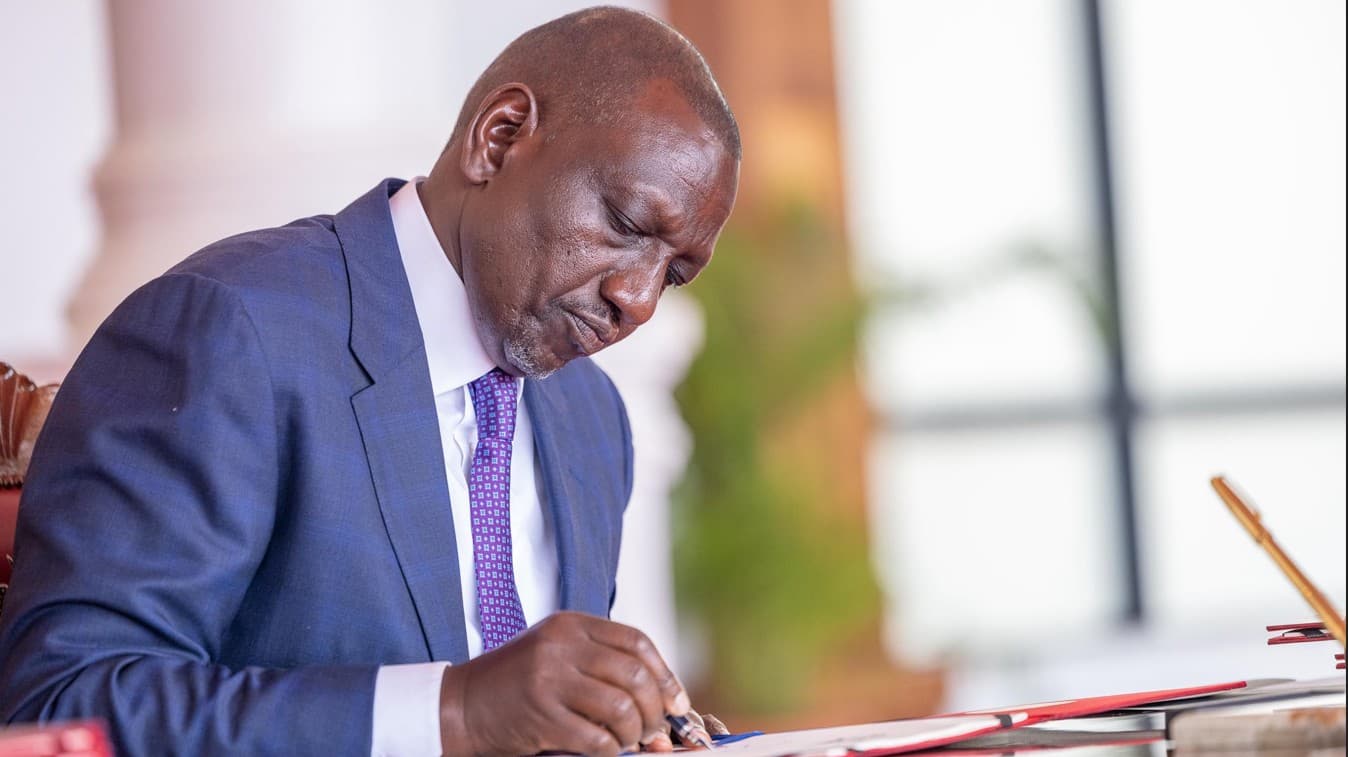We're loading the full news article for you. This includes the article content, images, author information, and related articles.
President Ruto replaced chairs of key health agencies, aiming to tighten governance and restore public trust in Kenya’s healthcare services over the next three years.

NAIROBI, July 26, 2025 — President William Ruto, through a Kenya Gazette notice dated July 25, has made sweeping changes in leadership across key health institutions—including the Kenya National Public Health Institute (KNPHI)and the Kenya Medical Practitioners and Dentists Council (KMPDC)—as part of a broader effort to tighten governance and restore public confidence in health systems.
Paul Ndung’u Kariuki has been appointed Non‑Executive Chairperson of KNPHI, replacing David Ndegwa Nyokabi, whose term was revoked. Kariuki’s three-year term begins July 25, 2025.
Fredrick Namenya Were is the new Chairperson of KMPDC, taking over from Prof. Stanley Khainga, whose appointment was also revoked. Were will serve for a three-year term.
In addition, Dr Abbas Gullet, the former Secretary General of the Kenya Red Cross Society, has been named Chairperson of Kenyatta National Hospital’s Board. His appointment is part of the broader health sector shake-up.
Governance overhaul: The move signals the President’s intent to reassert oversight over national health agencies, following safety and accountability concerns highlighted in various hospitals.
Public confidence: By replacing board heads, the administration seeks to project responsiveness to criticisms over leadership and service delivery in public health institutions.
Expert-led leadership: All appointees carry extensive sectoral or institutional experience—especially Dr Gullet with humanitarian and ambulance systems expertise, and Dr Kariuki and Mr Were with regulatory or public administration credentials.
KNPHI plays a critical role in disease surveillance, epidemic preparedness, and public health research. Leadership shifts aim to reinforce its mandate ahead of anticipated health threats.
KMPDC oversees the licensing and ethics of medical practitioners. Under new chairmanship, it is expected to sharpen professional standards, accountability, and regulatory compliance across the healthcare workforce.
|
Institution |
New Chairperson |
Replaced |
Term |
|---|---|---|---|
|
KNPHI |
Paul Ndung’u Kariuki |
David Ndegwa Nyokabi |
3 years (from July 25, 2025) |
|
KMPDC |
Fredrick Namenya Were |
Prof Stanley Khainga |
3 years |
|
KNH Board |
Dr Abbas Gullet |
Dr Samier Muravvej |
3 years (from Aug 5, 2025) |
Reform expectations: Stakeholders expect the new leaders to fast-track reforms—especially in areas like professional conduct, audit compliance, medical ethics, and referral hospital safety protocols.
Performance benchmarks: Both institutions will be under scrutiny to show measurable gains in service delivery, practitioner discipline enforcement, public health resilience, and eradicating malpractice.
Public sector momentum: The appointments also suggest the administration is keen to sustain momentum under the Bottom‑Up Economic Transformation Agenda (BETA) by ensuring health infrastructure and oversight complement development goals.
Bottom line: President Ruto’s appointments are a clear signal that Kenya’s health sector is entering a new phase of governance—one that emphasises accountability, credibility, and leadership accountability. With new stewards at KNPHI and KMPDC, the public and sector stakeholders will be watching whether these changes translate into real improvement in health services and regulatory rigor.
Keep the conversation in one place—threads here stay linked to the story and in the forums.
Other hot threads
E-sports and Gaming Community in Kenya
Active 8 months ago
The Role of Technology in Modern Agriculture (AgriTech)
Active 8 months ago
Popular Recreational Activities Across Counties
Active 8 months ago
Investing in Youth Sports Development Programs
Active 8 months ago